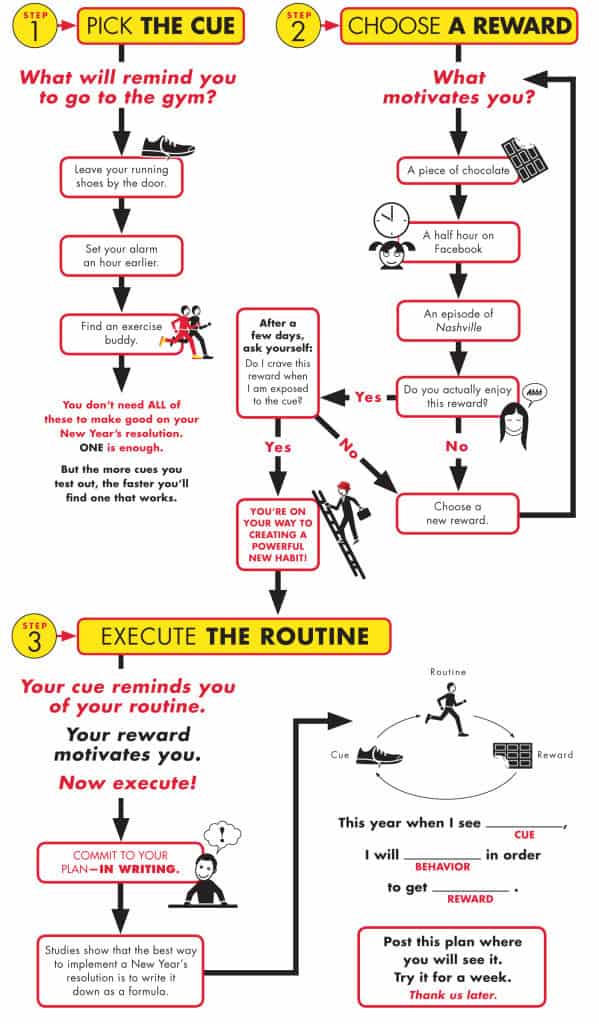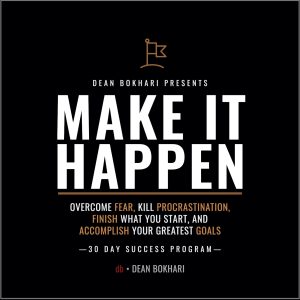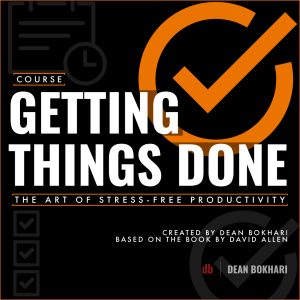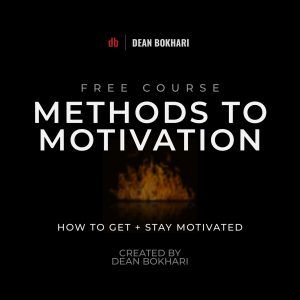When you woke up this morning, what did you do first? Did you hop in the shower, did you check your email, or did you grab a doughnut from the kitchen counter? Did you brush your teeth before or after you toweled off? Which route did you drive to work?
And when you got home, did you put on your sneakers and go for a run, or did you pour yourself a drink and crush a Lean Cuisine in front of the TV?
In 1892, the famous psychologist, William James wrote, “All our life, so far as it has definite form, is but a mass of habits,” — I absolutely love that because it’s absolutely true: most of the choices we make each day may feel like the products of well-considered decision making, but they’re not. They’re habits. And though each habit means relatively little on its own, over time, the meals we order, whether we save or spend, how often we exercise, and the way we organize our thoughts and work routines have enormous impacts on our health, productivity, financial security and happiness.
One paper published by a Duke University researcher in 2006 found that more than 40 percent of the actions people performed each day weren’t actual decisions, but habits (1)
Habits, by definition, are choices that we all make deliberately at some point—and then stop thinking about but continue doing, often every day. At one point, we all consciously decided how much to eat and what to focus on when we got to the office, how often to have a drink or when to go for a jog. But then we stopped making a choice, and the behavior became automatic. It’s a natural consequence of our neurology. And by understanding how it happens, you can rebuild those patterns in whichever way you choose.
This episode/article combo was inspired by a book called “The Power of Habit” by Charles Duhigg. (If you’d like the full book summary for this book—including the audiobook summary—join our monthly subscription.)
For now, though, we’ll focus on a few of my favorite big ideas + actionable insights from the book.
Here’s what you’ll discover in this episode/article:
- How habits emerge
- What every habit has in common—regardless of whether it’s a “good” habit or a “bad” one
- And a simple, 3-step process to creating good habits that stick, or breaking bad habits that stink
How habits emerge
“Habits, scientists say, emerge because the brain is constantly looking for ways to save effort. Left to its own devices, the brain will try to make almost any routine into a habit, because habits allow our minds to ramp down more often. This effort-saving instinct is a huge advantage. An efficient brain also allows us to stop thinking constantly about basic behaviors, such as walking and choosing what to eat, so we can devote mental energy to inventing spears, irrigation systems, and, eventually, airplanes and video games.” — Charles Duhigg, The Power of Habit
In “The Power of Habit” Duhigg describes a series of experiments run by researchers at MIT on the science of habit formation.
The researchers were running these experiments on groups of rats—dropping them into mazes and making them sniff around for a piece of chocolate placed at the end.
They wanted to monitor brain activity in the rats as they moved about the maze, so they inserted super-tiny micro-sensors in their brains. This, helped the researchers determine which parts of the brain would light up when the rats were running through the maze—which would help them understand how the brain forms habits.
So, they begin the experiment…
And at first, it seemed like the rats weren’t really doing anything interesting at all. They’d start at the beginning of the maze, sniff around, scratch the walls a bit, and randomly pause every now and then before moving through the maze again.
But then the researchers noticed something big: each time the rats moved from one end of the maze to the other; they sniffed around a little less, scratched the walls a little less, and paused a little less—thus, moving through the maze faster and faster with each run.
After running the rats through the maze several times, they learned that the mental activity decreased in the rats with each successful navigation through the maze. As the route became more and more automatic, the rats were actually thinking less about how to get through the maze… No more sniffing, scratching, and pausing necessary. Now, they could speed from start to finish hardly without thinking at all.
The researchers found, that this automaticity in the rats relied on a part of the brain called the basal ganglia, which took over as the rat ran faster and faster and its brain worked less and less.
The basal ganglia was central to recalling patterns and acting on them. In other words, its responsible for storing habits even while the rest of the brain falls asleep.
And your brain works the same way.
This process is called “chunking,” and it plays a primary role in how habits form. With “chunking,” the brain converts a sequence of actions—like brushing your teeth, tying your shoes, or backing your car into the garage—into an automatic routine.
Bottom line? Habits emerge because our brains are always on the lookout for efficient ways to save effort.
So, how do we form habits, then?
The power of Habit Loops
“This process within our brains is a three-step loop. First, there is a cue, a trigger that tells your brain to go into automatic mode and which habit to use. Then there is the routine, which can be physical or mental or emotional. Finally, there is a reward, which helps your brain figure out if this particular loop is worth remembering for the future.” — Charles Duhigg, The Power of Habit
If you want to create new habits of any kind, it’s crucial that you use habit loops.
Every habit you’ve ever create (the good ones and the bad) are grounded in a three-step habit loop that looks like this:

CUE + ROUTINE + REWARD = HABIT
New habits depend on this three-step loop:
- The cue—a trigger for your brain that tells it which habit to use.
- The routine—how a habit influences what you do, think, or feel.
- The reward—which helps us determine how valuable the habit is, and whether it’s worth remembering or not.
Now let’s talk about how you can use this habit loop to develop better habits within your own life…
Find a cue, define the reward
“If you want to start running each morning, it’s essential that you choose a simple cue (like always lacing up your sneakers before breakfast or leaving your running clothes next to your bed) and a clear reward (such as a midday treat, a sense of accomplishment from recording your miles, or the endorphin rush you get from a jog). But countless studies have shown that a cue and a reward, on their own, aren’t enough for a new habit to last. Only when your brain starts expecting the reward—craving the endorphins or sense of accomplishment—will it become automatic to lace up your jogging shoes each morning. The cue, in addition to triggering a routine, must also trigger a craving for the reward to come.” — Charles Duhigg, The Power of Habit
The key to creating habits is based on a simple formula any one of us can adopt.
Let’s say you want to create the habit of working out first thing in the morning:
- You begin by choosing a CUE, like keeping your gym shoes by the door.
- This cue should trigger the ROUTINE you want to develop—in this case, exercising early in the morning.
- Next, you choose a clear REWARD, like a smoothie after each workout.
- Finally, you allow yourself to crave/anticipate that reward, by thinking about the smoothie you’ll get to enjoy once you’re done crushing it in the gym.
The simple addition of a craving could be what makes the difference between whether you get up and hit the gym, or hit snooze and bury yourself back under the sheets.
Cravings drive habits.
The reason behind why habits are so powerful is because they actually create neurological cravings. And figuring out what sparks your cravings is what can make creating a habit easier for you.
Actionable insights
- Think of a habit you want to create, and write it down.
- Next, think of your cue. Write it down.
- Now, think of your reward. Write it down.
- Finally, remember to make sure the reward is something you’ll be able to crave or anticipate as you create this new habit.
Read or listen next
- Book Summary: The Power of Habit by Charles Duhigg
- Book Summary: Atomic Habits by James Clear
- The 10-Step Guide to Forming New Habits
- Book Summary: Tiny Habits by BJ Fogg
- Emotions Create Habits
Notes
- Book mentioned: The Power of Habit: Why We Do What We Do In Life and Business by Charles Duhigg
- Neal, David T., Wendy Wood, and Jeffrey M. Quinn. “Habits—A repeat performance.” Current Directions in Psychological Science 15.4 (2006): 198–202.


